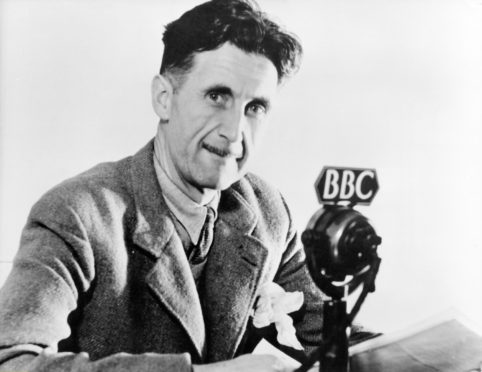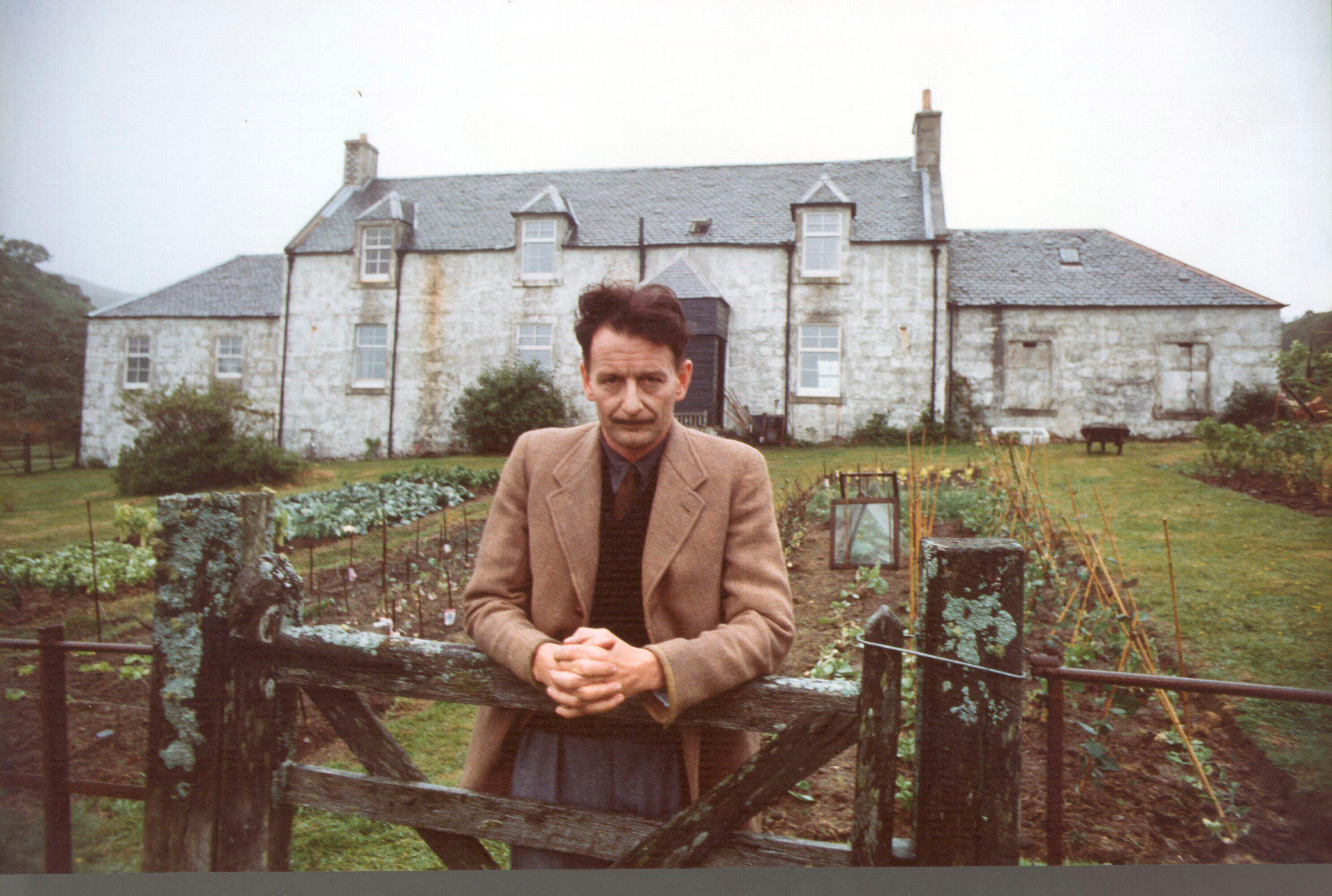
He was the scourge of totalitarianism and introduced the world to the terms Big Brother, Newspeak, Doublethink and the Ministry of Truth.
But George Orwell feared for his life so much at his remote Scottish island retreat that he slept with a gun under his pillow, according to a new biography.
And his fears had good cause too.
Orwell (real name Eric Blair), his first wife Eileen and other members of the Independent Labour Party contingent had been spied upon during the Spanish Civil War while fighting for the Republicans.
Then in 1946, already famous from the publication of the Soviet satire Animal Farm, a worried Orwell is said to have borrowed – and later returned – a gun from fellow writer Ernest Hemingway while in Paris. But it was when he started work on his novel Nineteen Eighty-Four at Barnhill on Jura that Orwell next feared for his life.
Author Norman Bissell reveals in his new book, Barnhill, that David Holbrook, the boyfriend of Orwell’s housekeeper Susan Watson, was a member of the Communist Party of Great Britain – and Orwell suspected him to be a spy.
“In the first year on Jura, Orwell only wrote 50 pages of Nineteen Eighty-Four – but Holbrook managed to read some of it, unbeknownst to Orwell. He got a sneak preview,” said Mr Bissell, whose draft of his book was read and advised upon by Orwell’s son Richard Blair.
“Animal Farm had been a huge success and was hated by the left because it exposed their terror tactics. They wanted to know what Orwell was writing about next. If Orwell was paranoid about being assassinated who could blame him? He feared for his safety to the extent that he slept with a loaded Luger Parabellum pistol under his pillow at Barnhill.
“You have to remember that after Trotsky had been assassinated, he was the biggest thorn in Stalin’s side.
“He didn’t want Holbrook at Barnhill, but he was worried about losing Susan, who also cared for his young son. But in the end she had a huge row with Orwell’s sister Avril and she and Holbrook left. Holbrook would have had an idea of what was coming with Nineteen Eighty-Four. I think Orwell was convinced he could be assassinated. He was justified in his fears. He invented the phrase Cold War after all and was a major influence on shaping thought about the threat of the Soviet Union.”
Mr Bissell, who lives on the Isle of Luing, said he recently learned that Mr Blair has appealed to Russia for his father’s notes and other writing that “found their way” to the Soviets from the author’s time in Spain.
“It is in an archive in Moscow that is now closed. Richard has written asking for the return of his father’s materials that have been stolen. They could be historically very important. But I understand there has been no reply to date,” he said.
The struggle to get Nineteen Eighty-Four written at Barnhill, a secluded farmhouse on the island, is charted by Mr Bissell 70 years after the seminal novel was first published. He received a bursary from Creative Scotland and is working on a film script about the subject.
The book involved 12 years of research and writing and covers the last six years of Orwell’s life.
“Orwell was passionate in his defence of truth. He was consumed by the need to alert us to what could happen if we do not stand up against those who lie and spy on us,” said Mr Bissell. “What intrigued me was how he wrote a dystopian novel in such a beautiful place.
“He was a great lover of nature, which was what attracted me. He was knowledgeable and interested in the natural world and animals of all kinds which is why he could write such a brilliant book about them in Animal Farm.”
While Orwell rented the farmhouse, he dug peat, went fishing, shot rabbits and got venison. The book, published by Luath, also reveals how Orwell struggled with the death of his first wife and his devotion to his baby son.
“A big part of the story was how he had to cope with the grief of losing Eileen and about his devotion to Richard,” said Mr Bissell.
Orwell nearly died after his dinghy was wrecked in the Corryvreckan Whirlpool off Jura, tipping him and his young son, niece and nephew overboard without life jackets.
The accident, in the summer of 1947, occurred midway through the writing of Nineteen Eighty-Four. The same year he finished the first draft of the book, but the effort was so great that he went into Hairmyres hospital in East Kilbride, spending seven months there because the Tuberculosis he had earlier in his life came back.
He recovered and returned to Barnhill in 1948 but his health deteriorated and he left Jura for the last time in 1949, going into a sanatorium in Gloucestershire.
He died in January 1950, aged just 46.
“It was a bright cold day in April, and the clocks were striking thirteen.”
The opening sentence of George Orwell’s Nineteen Eighty-Four has become one of the most famous in literature.
The 1949 novel opens with an image that is jarring and unsettling, the perfect introduction to a jarring and unsettling future. That feeling of unease is only increased by what comes next: “Winston Smith, his chin nuzzled into his breast in an effort to escape the vile wind, slipped quickly through the glass doors of Victory Mansions, though not quickly enough to prevent a swirl of gritty dust from entering along with him. The hallway smelt of boiled cabbage and old rag mats.”

Enjoy the convenience of having The Sunday Post delivered as a digital ePaper straight to your smartphone, tablet or computer.
Subscribe for only £5.49 a month and enjoy all the benefits of the printed paper as a digital replica.
Subscribe